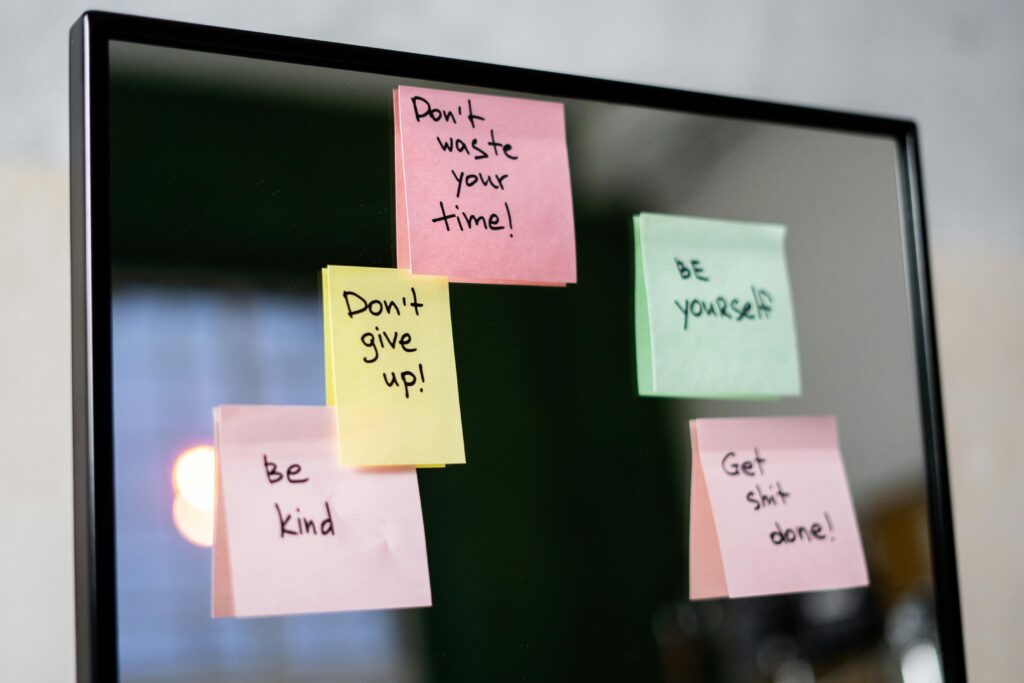Self-care is an essential practice for overall well-being, and it encompasses much more than the occasional spa day or face mask. It’s about consistently taking care of your physical, emotional, spiritual, and mental health to live a balanced, fulfilling life. For women, self-care is even more crucial as they often juggle multiple roles and responsibilities, leaving little time for themselves. In this guide, we’ll explore the different types of self-care every woman should practice, how each improves well-being, and tips on incorporating them into daily life.
Overview of Self-Care
Self-care isn’t just about pampering yourself; it’s a holistic approach to taking care of all aspects of your well-being. Each type of self-care plays a specific role in keeping your body, mind, and emotions in harmony, helping you cope with stress, prevent burnout, and maintain a sense of inner balance. Here, we’ll dive into eight types of self-care that women should incorporate into their daily or weekly routines, and how each contributes to a more grounded and healthier life.
1. Physical Self-Care Tips

Physical self-care involves nurturing your body to keep it healthy, strong, and energized. This type of self-care emphasizes exercise, nutrition, sleep, and general health maintenance.
Why It Matters:
- Promotes better physical health and energy levels.
- Reduces the risk of illness and injury.
- Improves mood and reduces symptoms of stress and anxiety.
Physical Self-Care Ideas:
- Exercise Regularly: Engage in activities like walking, yoga, dancing, or any form of movement that makes you feel good. Aim for at least 30 minutes of moderate exercise five times a week.
- Eat a Balanced Diet: Focus on a nutrient-rich diet filled with vegetables, fruits, lean proteins, and whole grains. Avoid overly processed foods and excessive sugar.
- Prioritize Sleep: Get 7-9 hours of quality sleep every night. Create a relaxing bedtime routine and maintain a consistent sleep schedule.
- Stay Hydrated: Drink plenty of water throughout the day to stay hydrated and flush out toxins.
- Regular Health Checkups: Don’t skip medical, dental, or eye checkups. Being proactive about your health prevents future issues.
Table of Contents
Toggle2. Emotional Self-Care for Mental Health

Emotional self-care is about understanding and managing your feelings. It helps you cope with emotional challenges and stresses, allowing you to stay in tune with your mental well-being.
Why It Matters:
- Enhances self-awareness and emotional intelligence.
- Helps reduce feelings of overwhelm, stress, and anxiety.
- Encourages a more positive mindset and resilience.
Emotional Self-Care Ideas:
- Journaling: Write down your thoughts and emotions regularly to gain clarity and release stress.
- Set Boundaries: Protect your emotional energy by learning to say no to things or people that drain you.
- Practice Gratitude: Take a few minutes each day to acknowledge what you’re grateful for. This shift in focus can improve mood and emotional resilience.
- Seek Therapy: Talk to a counselor or therapist when needed to work through difficult emotions or mental health struggles.
- Engage in Activities That Bring Joy: Whether it’s painting, reading, or spending time in nature, prioritize activities that uplift your spirit.
3. Spiritual Self-Care Practices

Spiritual self-care involves connecting with your inner self and the larger universe, whether through religion, meditation, or simple acts of mindfulness.
Why It Matters:
- Fosters a sense of purpose and meaning in life.
- Helps reduce feelings of isolation and promotes inner peace.
- Encourages mindfulness and living in the present moment.
Spiritual Self-Care Ideas:
- Meditation and Breathwork: Set aside time for meditation or deep breathing exercises to clear your mind and ground yourself.
- Connect with Nature: Spend time in nature, whether it’s a walk in the park or a hike, to reconnect with the earth and feel grounded.
- Daily Affirmations: Speak positive affirmations to yourself to strengthen your inner sense of purpose and worth.
- Practice Gratitude or Prayer: For those who are religious or spiritual, praying or practicing gratitude daily can enhance spiritual health.
- Read Spiritual Texts: Dive into spiritual books or listen to podcasts that resonate with your beliefs and uplift your spirit.
4. Mental Self-Care for Cognitive Health

Mental self-care focuses on activities that stimulate and nurture your mind. It’s about keeping your brain active and engaged while minimizing negative self-talk and mental clutter. If you’re a new mother, you need special postpartum mental care.
Why It Matters:
- Enhances memory and concentration.
- Reduces the risk of cognitive decline as you age.
- Helps in problem-solving and maintaining mental clarity.
Mental Self-Care Ideas:
- Learn Something New: Take up a new hobby or learn a new skill to challenge your brain. Whether it’s a language or craft, keeping your mind active is key.
- Mindful Breaks: Take breaks from work or screens to avoid burnout. Practice mindfulness during these breaks by focusing on your breath or surroundings.
- Puzzles and Brain Games: Engage in puzzles, Sudoku, or other brain games to boost cognitive function.
- Limit Negative Input: Reduce exposure to negative news, social media, or people who bring you down mentally.
- Read Daily: Reading books, articles, or listening to podcasts helps expand your knowledge and keeps your mind sharp.
5. Social Self-Care and Its Importance

Social self-care is about nurturing relationships and connecting with others. As humans, we thrive on connection, and maintaining meaningful relationships is vital to mental and emotional health.
Why It Matters:
- Reduces feelings of loneliness and isolation.
- Strengthens emotional resilience and self-esteem.
- Provides a support system during challenging times.
Social Self-Care Ideas:
- Spend Quality Time with Loved Ones: Prioritize time with family and friends, whether it’s through a phone call, video chat, or in-person meet-up.
- Join a Community: Engage in groups, whether online or in person, where you share common interests (e.g., book clubs, yoga classes).
- Set Boundaries with Toxic People: Minimize or cut ties with individuals who drain your energy or negatively impact your mental health.
- Ask for Help: Reach out for support when you need it. Don’t be afraid to lean on others during tough times.
- Volunteer or Give Back: Helping others can foster a sense of connection and community while boosting your self-worth.
6. Financial Self-Care for Better Money Management
Financial self-care involves managing your finances to reduce stress and create a sense of security. Women often face unique financial challenges, making this type of self-care especially important.
Why It Matters:
- Promotes financial independence and stability.
- Reduces financial stress and anxiety.
- Helps achieve long-term financial goals and security.
Financial Self-Care Ideas:
- Create a Budget: Keep track of your income and expenses. Setting a realistic budget helps you stay in control of your finances.
- Start Saving: Build an emergency fund and set aside money for long-term goals like retirement or a vacation.
- Invest in Yourself: Invest in personal development, education, or career advancement to increase your earning potential.
- Automate Savings: Set up automatic transfers to savings accounts to ensure you’re regularly saving without thinking about it.
- Financial Literacy: Take time to educate yourself on financial management, investments, and debt reduction strategies.
7. Environmental Self-Care for a Positive Surrounding

Environmental self-care refers to taking care of your physical space and environment, ensuring it’s a place where you can thrive.
Why It Matters:
- Creates a sense of calm and well-being in your surroundings.
- Reduces stress and mental clutter.
- Promotes productivity and focus.
Environmental Self-Care Ideas:
- Declutter Regularly: Clear out physical clutter to make your space more organized and peaceful.
- Create a Relaxing Space: Design a corner of your home that feels like a sanctuary, with plants, cozy blankets, or soft lighting.
- Reduce Environmental Toxins: Use eco-friendly products, reduce plastic use, and open windows to let fresh air circulate.
- Bring Nature Indoors: Add plants or flowers to your living space to create a more serene atmosphere.
- Personalize Your Space: Surround yourself with objects that make you feel happy and calm, like family photos or inspirational quotes.
Self-Care for Introverts vs. Extroverts
Self-care practices differ based on personality types, especially between introverts and extroverts. For introverts, self-care often means finding alone time to recharge and reflect, while extroverts may thrive on social interactions that energize them.
Why It Matters:
- Customizes self-care to suit your personality, ensuring it’s effective and sustainable.
- Reduces the risk of burnout by catering to your unique energy needs.
- Promotes a balanced lifestyle that complements your natural tendencies.
Self-Care Ideas for Introverts
- Quiet Time Alone: Dedicate time for solitude to reflect, meditate, or engage in quiet hobbies like reading or journaling.
- Nature Walks: Go for peaceful walks in nature to unwind and recharge your energy.
- Mindful Activities: Engage in activities that allow for introspection, such as yoga, drawing, or knitting.
- Home Sanctuary: Create a cozy, calming space at home where you can relax and recharge without distractions.
- Limit Social Interactions: Be selective with social engagements, ensuring they don’t overwhelm you. Prioritize quality over quantity in your relationships.
Self-Care Ideas for Extroverts
- Social Time with Friends: Extroverts can benefit from regular social interactions, such as attending group events, going out with friends, or joining clubs.
- Volunteer in Groups: Engage in volunteer work or community events where you can connect with others and contribute positively.
- Fitness Classes: Attend group fitness classes like Zumba or spin to combine physical exercise with socializing.
- Networking Events: Participate in professional or social networking events to energize yourself through stimulating conversations.
- Explore New Places: Plan adventures or activities that allow you to meet new people and explore different environments.
Self-Care for Busy Professionals
For busy professionals, self-care can be challenging but is essential to prevent burnout, maintain productivity, and sustain a work-life balance. Women in the workforce often find themselves juggling career, family, and personal life, making it vital to carve out intentional time for self-care.
Why It Matters:
- Prevents burnout by incorporating manageable self-care routines.
- Boosts productivity by maintaining physical and mental health.
- Helps in sustaining long-term career success and personal fulfillment.
Self-Care Ideas for Busy Professionals:
- Time Blocking for Self-Care: Schedule short breaks throughout the day for self-care activities like a quick walk, meditation, or stretching. Even a 10-minute break can reduce stress.
- Set Work-Life Boundaries: Establish clear boundaries between work and personal life. For example, avoid checking emails after a certain hour or on weekends.
- Delegate Tasks: Whether at work or at home, delegate tasks that others can handle to free up more time for yourself.
- Healthy Work Habits: Practice desk yoga, take regular standing breaks, and stay hydrated throughout the workday to care for your physical health.
- Unplug and Disconnect: Take time to disconnect from work and technology completely, whether during vacations or daily after-work hours, to recharge mentally and emotionally.
- Prioritize Sleep: Despite a busy schedule, ensure you’re getting sufficient rest. Set a consistent sleep routine to maintain your energy levels and productivity.
- Mindful Transitions: Use the transition time between work and home to unwind. Listen to music, a podcast, or engage in a short meditation to help shift from work mode to relaxation.
Conclusion
Self-care is a holistic practice that addresses multiple aspects of your well-being. Whether it’s physical, emotional, spiritual, or financial care, each type plays an important role in keeping your life balanced, energized, and fulfilling.
For women balancing multiple roles and responsibilities, self-care is a necessity, not a luxury. By incorporating various forms of self-care into your routine – whether you’re an introvert, extrovert, or a busy professional – you’ll find that it not only improves your physical health but also boosts your emotional resilience, mental clarity, and overall happiness.
So, take the time to evaluate what types of self-care you may be missing out on, and make a conscious effort to prioritize yourself in every way. Self-care isn’t selfish – it’s an essential part of living a healthy and fulfilled life.




13 thoughts on “Types of Self-Care: A Complete Guide for Women”
Your point of view caught my eye and was very interesting. Thanks. I have a question for you.
I found this post really helpful! Keep up the great work and continue sharing your knowledge.
Your insights on this topic are truly valuable. I appreciate your well-thought-out perspective.
Your insights on this topic are truly valuable. I appreciate your well-thought-out perspective.
This was an excellent read! I appreciate the effort you put into explaining everything so clearly.
Great post! I learned a lot from this. It’s always good to read well-researched content like this.
I really enjoyed reading this post. You provided some great insights on this topic. Looking forward to more content from you!
If some one needs to be updated with latest technologies afterward he must be go to
see this web page and be up to date daily.
I like what you guys are up too. This kind of clever work and coverage! Keep up the good works guys I’ve added you guys to my own blogroll.
It’s appropriate time to make some plans for the future and it’s time to be happy. I’ve learn this submit and if I may I want to recommend you few interesting issues or suggestions. Maybe you could write subsequent articles referring to this article. I want to learn even more things approximately it!
Hey would you mind letting me know which webhost you’re utilizing? I’ve loaded your blog in 3 completely different browsers and I must say this blog loads a lot faster then most. Can you suggest a good internet hosting provider at a reasonable price? Thanks a lot, I appreciate it!
I’m extremely impressed together with your writing skills as smartly as with the structure for your weblog.
Is that this a paid topic or did you modify it your self?
Anyway keep up the nice high quality writing, it’s rare to
peer a great blog like this one nowadays. Stan Store!
awesome